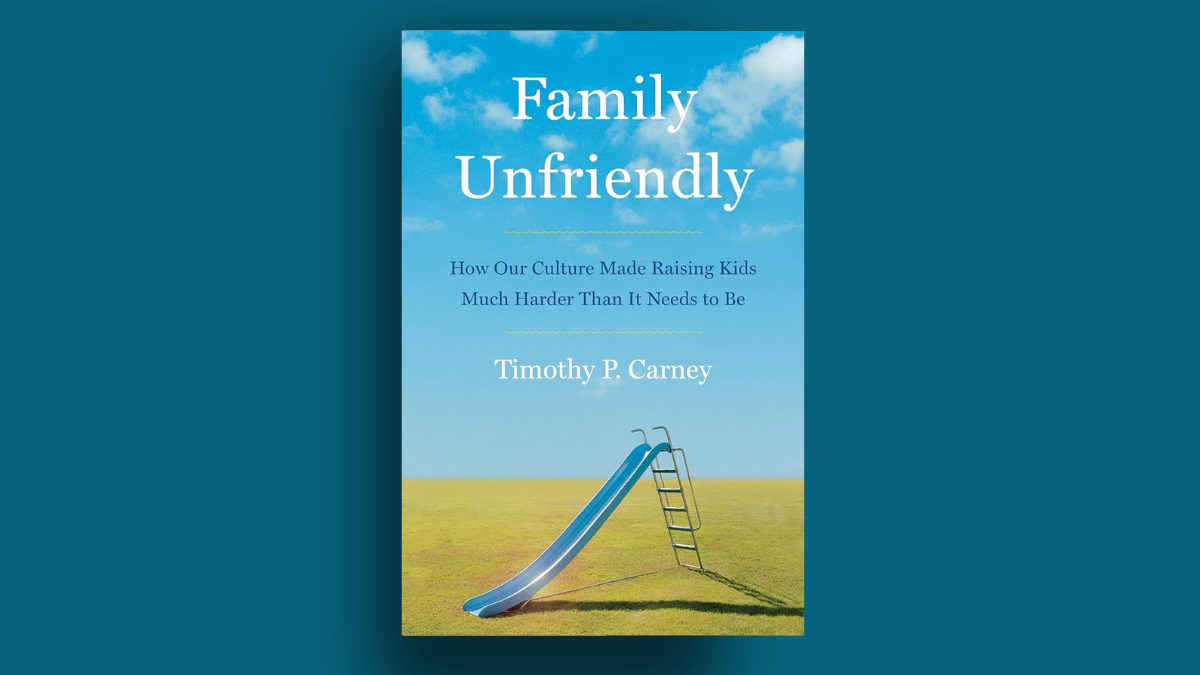The Reactionary Mind by Michael Warren Davis is a book one should take seriously, but not literally. If the reader misses this important truth, he will either laugh it off as clever but unrealistic critique of modernity or as the deranged ravings of a medievalist kook.
This is because Davis has the wherewithal and intelligence to take on the radically contrarian view that today’s human beings do not happen to live in the best of all possible worlds. In his opinion, everyone was much better off—at least spiritually and morally—living as serfs during the Medieval Ages.
The immediate reaction that most people would have to this claim—“But science! But democracy! But freedom!”—is the precise reason Davis’s book is such a must-read, particularly for conservatives who have largely been trained to adore the humanism of the Renaissance, the revolutions of The Enlightenment, and the material progress of the industrial revolution.
In his book, Davis demonstrates how these epochs and the way they’re remembered have narrowed Westerners’ outlook in such a way that they cannot help but feel despair at the way the world is despite all the ostensible progress. Even though they can play on their iPhones, curate their own reality, and avoid hardship, they are also chronically depressed, lonely, and generally unhealthy. Davis therefore devotes himself to the thankless task of breaking these habits of thought in order to liberate his audience from the decadence and malaise of modernity.
Reactionary History
Davis declares from the outset of the book, “This is a book about happiness.” However, this doesn’t mean he offers another generic self-help guide on ways to produce positive feelings. For Davis, happiness is tied up with history, religion, and culture, as well as the choices one makes in life. In his estimation, the real enemy of happiness is not sadness, but comfort: “For too long we’ve confused happiness with comfort.”
Before Davis offers his remedies for today’s comfortable misery, he first gives his diagnosis and considers the roots of the problem. As such, he devotes the first half of his book to history, starting from the glory days of Medieval Christendom.
According to Davis, what made this time ideal was the coherence, self-reliance, and piety all fully at work within society. As he sees it, the typical peasant during the so-called Dark Ages had a beautifully simple and independent life. He did real work, had a real community, and experienced real freedom. By contrast, today’s people have “bulls–t jobs,” have no friends or family, and are enslaved to their perpetually stimulated appetites.
Although many default to celebrating today’s material conditions over the relative squalor of the serfs, this misses the point. Much of the peasants’ happiness could be directly attributed to the material hardship they embraced: “Such happiness was not only independent of wealth, but could be found in poverty.” Davis doesn’t necessarily condemn today’s innovations in hygiene and physical safety, but questions advances in comfort and productivity that have effectively robbed people of their humanity.
The Loss of a Cohesive World
The idyllic world of the serf began to unravel during the Renaissance, when a group of self-proclaimed scholars took aim at the values, practices, and aesthetic that formerly held feudal communities together. It wasn’t so much a “rebirth” of classical wisdom (which was already alive before then), but a pretentious escape from the Christian worldview: “The Renaissance was subversive by its very nature, asserting the culture of pagan, classical world against the medieval Christian order.” It wasn’t that the world became smarter or refined; it just became more skeptical and vain.
The Renaissance ushered in subsequent breaks with Christendom in the forms of the Reformation and the Scientific Revolution. In the case of the Reformation, Davis contrasts the church’s occasional inquisition of heretics with the massive outbreak of violence across Europe that accompanied the emergence of Protestantism. Whereas most of the West had shared a common culture and faith just a century earlier, it then became fragmented and hostile.
There were many contenders for replacing the church. As Davis notes, “all societies must be based on a commonly held system of belief; and if the Catholic Church does not provide that system, something else will.” In the end, that something else was liberalism, which finally “overturned Christendom and the old feudal order.” Davis concedes that liberalism was at least better than continuous religious wars and seemed to work well enough, but it’s still dependent on a predominantly Christian population and can frequently succumb to leftist radicalism.
In the case of the Scientific Revolution and the dogmatic belief in the natural sciences, Davis dares to express his indifference to the whole thing and confesses he doesn’t know much about it. This is true for most people who aren’t scientists, but to say this openly triggers irrational hostility. According to Davis, this is because an irrational reverence for science helps condition people for the godless liberalism: “There must always be a voice somewhere in the back of their minds which says, ‘Whether or not God exists, he certainly isn’t necessary.”
Davis develops this point by examining the case of Galileo, the supposed martyr of science. Instead of mouthing the usual claims about Galileo challenging the church’s authority with his commitment to science over Christian fundamentalism, Davis takes the side of Galileo’s “persecutor,” St. Roberto Bellarmine, who saw in Galileo a kind of intellectual dehumanization: “Bellarmine wasn’t afraid that man would lose faith in God. He was afraid, rather, that man would lose faith in himself.”
Is Progress Really Progress?
So how does the reactionary see the French Revolution and the Civil War? Sure enough, he criticizes both, but not because the French monarchs and Southern aristocrats lost, or even because of the horrific bloodshed, but because the bureaucratic elite won. The French Revolution was less a revolution in democracy and natural rights and more a massive transfer of power to the government. He shares the view of Francois-Rene de Chateaubriand as Napoleon Bonaparte “as the founder of the administrative state” that would rule over the people far more ruthlessly, absolutely, and permanently than any medieval king.
Similarly, the Northern Union’s victory over the Confederate South brought about “Big Business and Big Government.” While the abolition of slavery was certainly a victory for the nation, it also came with the abolition of local governments, small businesses, family farms, and “rugged individualism.” The America of the Puritans, pioneers, and Founding Fathers was disappeared—and for Davis, a proud Yankee in New Hampshire, colonial New England is a close second to twelfth-century France.
By the end of his section on history, Davis makes it clear that he isn’t against progress per se, but against tradeoffs brought on by a dogmatic belief in progress. In reexamining the past through a reactionary rather than the typical progressive lens, he is able to break free of the prejudices and imagine a better kind of future that humanizes people and fosters real happiness.
A Prescription for a Happier Life
Thus, it’s now possible for Davis to give his prescription for a happier life in the reactionary mode. This is where the book feels more like a series of essays than a coherent whole—very similar in form to G.K. Chesterton’s reactionary classic What’s Wrong With the World. Also like Chesterton, Davis’s arguments often sparkle with brilliance but can sometimes become frustratingly impractical.
The brilliant moments come when Davis discusses the rise of consumerism, smartphone addiction, and media propaganda. The whole structure of modern society relies on these crutches that weaken the individual and community: “Work kept man happy; labor kept him occupied; soma keeps him stupid and pliant. Netflix and Amazon are our soma.” It’s difficult to disagree with him, even if this truth hurts.
The bigger idea behind these forces that keep the world going, according to Davis, is their attempt to obscure or suppress reality. The new is not real. The smartphone prevents human beings from perceiving reality—“It robs us of our capacity for rational thought and independent judgement.” And consumerism is based on illusions, pushing products that aren’t necessary for life and discourage any kind of self-sufficiency.
The impractical moments tend to happen when Davis discusses work and education. As Casey Chalk elaborates in his review of the book, it’s just not that helpful to wax nostalgically about the days where most people worked at craft and agriculture and women were domestic goddesses when trying to recreate this setup is either impossible or incredibly cumbersome.
The same goes for Davis’s discussion on education and his indiscriminate dismissal of all formal schooling, positing homeschooling and self-teaching in its place. If Davis were a homeschooled autodidact, his analysis might carry more weight, but he admits he went through prep school and university and studied under “the greatest scholar of T.S. Eliot on the planet.” It’s all too easy to tell others to get themselves a well-stocked library and blow off school.
The Reactionary Lifestyle
By the end of the book, Davis describes the reactionary lifestyle. It’s here of all places that he finally defines the term “reactionary” as “one who rejects the cheapness, the artificiality, of modern life.” This means that the reactionary will practice the patient arts—reading, writing, playing an instrument, smoking a pipe—and enjoy useful exercise outside.
For good measure, there is finally an appendix where Davis offers a reactionary guide on dog breeds, cocktails, and books. In case anyone wondered if the writer practices what he preaches, here’s the proof that he really does.
Ironically, for all its curmudgeonly criticism for the modern world, The Reactionary Mind is surprisingly relevant and hopeful. It’s also surprisingly witty and light. Davis is incredibly well-read and knowledgeable about the world. He anticipates the counterarguments and addresses them well. His observations are clear, and many of his conclusions are profound. Most importantly, he has a great sense of humor that he puts to good use as he makes fun of the world and himself.
Occasionally, there are brief moments where Davis overdoes it and comes off immature and petulant like Holden Caulfield in Catcher in the Rye. Aside from his chapter on education, much of this comes out in the final chapters when Davis criticizes men who work out at gyms or boasts about brawling with his friends to be a better man—someone needs to remind Davis that the first rule of Fight Club is not to talk about it.
Fortunately, these moments are rare and mostly add to what is already a fascinating and entertaining book. True, Davis may not inspire the masses to rip apart the anti-culture of today’s globalized, postmodern, inhuman dystopia—he even says as much, saying that the reactionary “doesn’t depend on new-fangled things such as parties or movements”—but he succeeds in the much harder task of persuading his readers to trade in their dull existence for real living.
This means rejecting modern propaganda, practicing self-reliance, strengthening social ties, recovering an appreciation for the natural world, and sipping a carefully made mint julep and contemplating a poem by Wordsworth at the end of a long day of work in the garden.









